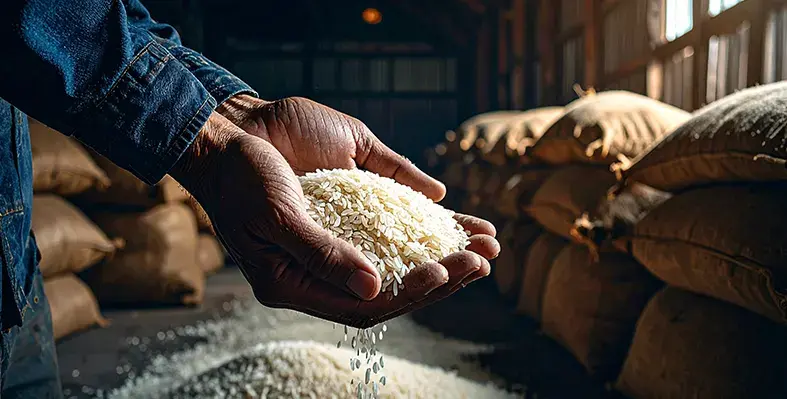The African Development Bank (AfDB) has approved a pivotal US$22.8mn grant to elevate rice production in Mozambique, reinforcing the country’s agricultural resilience against climate change
This funding is central to the Mozambique Rice and Climate Resilience Development Project, an initiative aimed at tackling critical issues within Mozambique’s rice farming sector while ensuring sustainable food security.
Rice holds a vital place in Mozambique’s agricultural landscape, yet challenges such as low productivity, insufficient irrigation infrastructure, and heightened climate vulnerability remain significant obstacles. The AfDB grant will directly address these concerns by funding essential irrigation development, distributing climate-resilient rice varieties, and promoting sustainable farming methods. A key focus will also be on empowering farmers through training programmes, equipping them with the tools and knowledge to adopt climate-smart agricultural practices that will drive long-term growth and sustainability.
The impact of this project will be most felt in the key rice-producing regions of Zambézia and Nampula, where enhanced rice yields will not only meet local demand but also stimulate rural economies. In a country where agriculture is a lifeline for many, the project’s success will be crucial in boosting food availability and improving income generation for thousands of farmers.
Given Mozambique's vulnerability to climate change, the project’s focus on climate resilience is timely. Rising temperatures, erratic rainfall, and the increasing frequency of extreme weather events threaten agricultural productivity and food security. By developing rice farming that can withstand these challenges, the project will reduce Mozambique’s dependence on rice imports, which currently account for a significant portion of national consumption.
This initiative aligns with Mozambique’s broader goals of economic diversification, poverty reduction, and sustainable development. As the project unfolds, it is poised to serve as a model for other African nations grappling with similar agricultural and climate issues, delivering lasting benefits for both the economy and the resilience of Mozambique’s farming communities.





